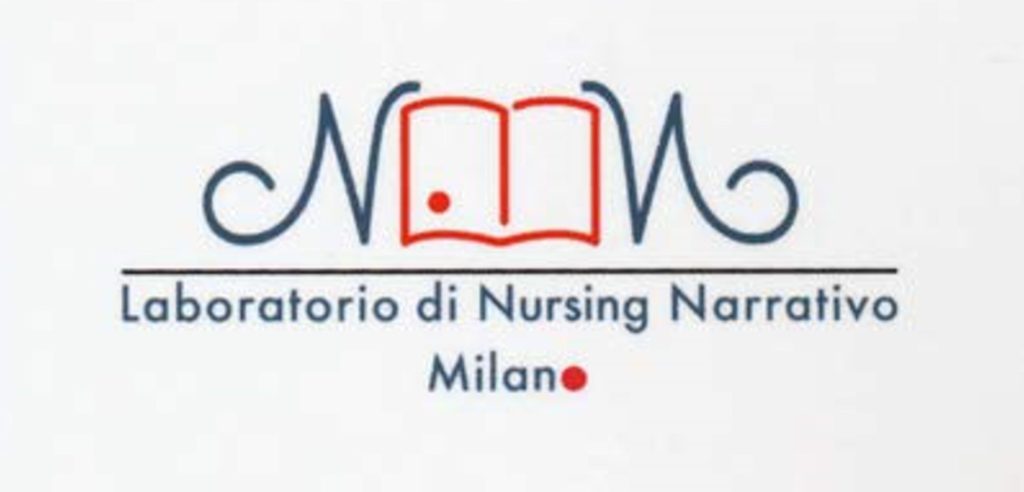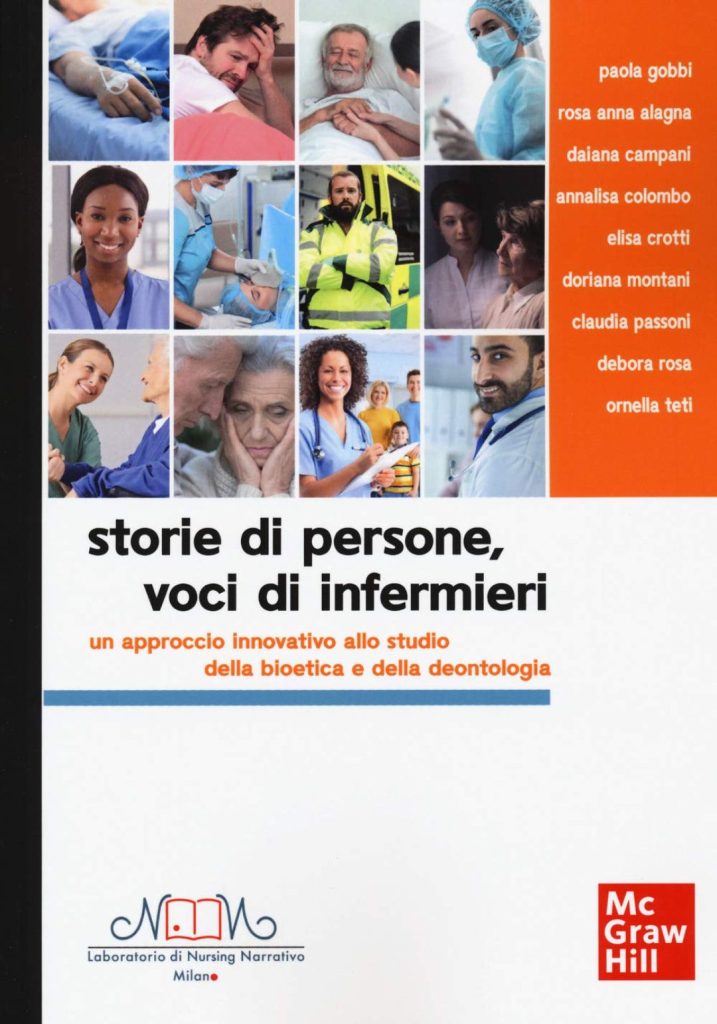A VIRTUAL SPACE FOR NURSES TO COMPARE NOTES
The Narrative Nursing Lab Milan is an original “virtual” reality, active now for five years, with a following of 3129 followers on the dedicated Facebook page (www.facebook.com/groups/722305605211129).
It was created by the authors – eight nurses and one journalist – in June 2020 (at the height of the pandemic!) on the occasion of the publication of their book “Storie di persone, voci di infermieri. Un approccio innovativo allo studio della bioetica e della deontologia”, published by Mc Graw-Hill (1).

The Facebook group “Laboratorio di Nursing Narrativo Milano” hosted the marketing initiatives related to the publication of the text in the early years; subsequently, the Laboratorio had the ambition to represent one of the voices, admittedly rather scarce in the Italian nursing scene, of debate on ethical-deontological issues affecting nursing practice.

Stories of People, Voices of Nurses is a text that has sold more than a thousand copies; it is a choral work, composed of many voices, some of which speak other languages and come from afar.
The authors, with this publication, set themselves the challenge of analyzing, discussing, and sharing bioethical and deontological content with colleagues, starting from their experiences of encountering the people they care for, in the different contexts of daily practice in which nurses work. In fact, the sixty stories in the text are narrated by and with nurses, and the analyses conducted on the different ethical problems, which the stories themselves brought out, contributed to the development of the profession, also in an international comparison.
The uniqueness of the book lies in the fact that it can be undertaken by anyone: by the person who has been a “patient,” as the stories narrated give the opportunity to review their own experiences or those of their loved ones; by the nursing professional who seeks tools and sharing in their daily care; by the teacher who wants to convey both content and insights to students at all levels; and by other health care professionals, as the stories narrated and the reflections that arise involve all those who work with people with health needs.
The book, over the years, has thus proved ideal for education in the university setting, for continuing education and for those who have wanted to learn more about the world of nursing, especially during and after the dramatic Covid period. The volume is also enriched with numerous references to the articles of the Nurses’ Code of Ethics and is still a valuable guide for decision-making in professional practice.
The text is presented as a collection of sixty cases with ethical value, narrated directly by the nurses who experienced them. The daily routine of nursing care is recounted, as well as the ethical issues that confront professionals when responding to the needs of individuals and their families. The stories told are divided by themes and range from everyday bioethics (information and consent, privacy and communication) to frontier bioethics (beginning and end of life, the elderly and chronicity, experimentation and research); they also address the ethical problems that arise in the education of future generations of nurses and in the organization of nursing services. An entire chapter is then devoted to international comparisons (Nursing around the world) and the new challenges of nursing, with a reflection on the recent COVID-19 pandemic and the role played by health professionals in emergency management.
The book is further enriched by the preface of Barbara Mangiacavalli, President of the Federation of Health Professions (FNOPI), and Roberta Sala, Full Professor of Political Philosophy at Vita-Salute San Raffaele University of Milan.
Many of these stories of which the book is composed were collected during ad hoc training sessions (focus groups) conducted among multidisciplinary groups of professionals, mostly nurses (2).
According to bioethicist Sandro Spinsanti, in fact, the most effective method for conveying ethical-deontological content is the confrontation with clinical cases (“patients’ stories”) since health professionals prefer to start from practice rather than from theoretical or philosophical considerations (3).
In 2023 and 2024, the Laboratory designed and implemented as many as sixteen online events entitled “Tuesdays with the Laboratory of Narrative Nursing,” held monthly: some of the authors of the book met with influential colleagues and colleagues who have implemented good nursing practices in their own work contexts throughout Italy, also managing to provide concrete answers to the ethical problems of everyday caregiving. These meetings also had the merit of making such “virtuous” experiences known to a wider audience, in fact obtaining on average more than a thousand views each, mostly from health care professionals, but also from many citizens.
The series of events obtained the patronage of the prestigious Italian Institute of Bioethics, directed by Prof. Luisella Battaglia.
In the attached table (available in Italian) we wanted to represent an overview of the experiences conducted: there are the dates and titles of the sixteen events held, the speakers who took part, a summary of the topics covered with keywords, and the link where they can be reviewed.
As always, the main tool used by the Laboratory is storytelling: through the presentation of stories (in the book) and experiences (in the online events) directly lived by nurses in their daily activities, the aim has been to emphasize the relational component of “taking care” between professionals and people being cared for with a focus on some core issues: self-determination, shared planning and consent to care, living will, care in difficult settings, care in oncohematology, reorganization of the territory through Community Homes, specialized and advanced skills of nurses.
The current year will be dedicated to the dissemination of the valuable material produced: a dedicated Youtube channel has been created, through which all sixteen videos produced can be downloaded free of charge and used, for example, during educational activities aimed at students and professionals.
Bibliography
- Gobbi P, Alagna RA, Campani D, Colombo A, Crotti E, Montani D, Passoni C, Rosa D, Teti O. Storie di persone, voci di infermieri. Un approccio innovativo allo studio della bioetica e della deontologia. Mc Graw-Hill, Milano, 2020.
- Gobbi P, Carnevale F. Validity of the Italian Code of Ethics for everyday nursing practice. Nurs Ethics 25(7):906-17, 2018.
- Spinsanti S. Bioetica e nursing. Pensare, riflettere, agire. Mc Graw-Hill, Milano, 2001.
Paola Gobbi, Annalisa Colombo, Doriana Montani, Claudia Passoni, Teresa Profeta, nurses
Elisa Crotti, communication expert
Laboratorio di Nursing Narrativo, Milano
For contact with the authors:
gobbip@yahoo.com
